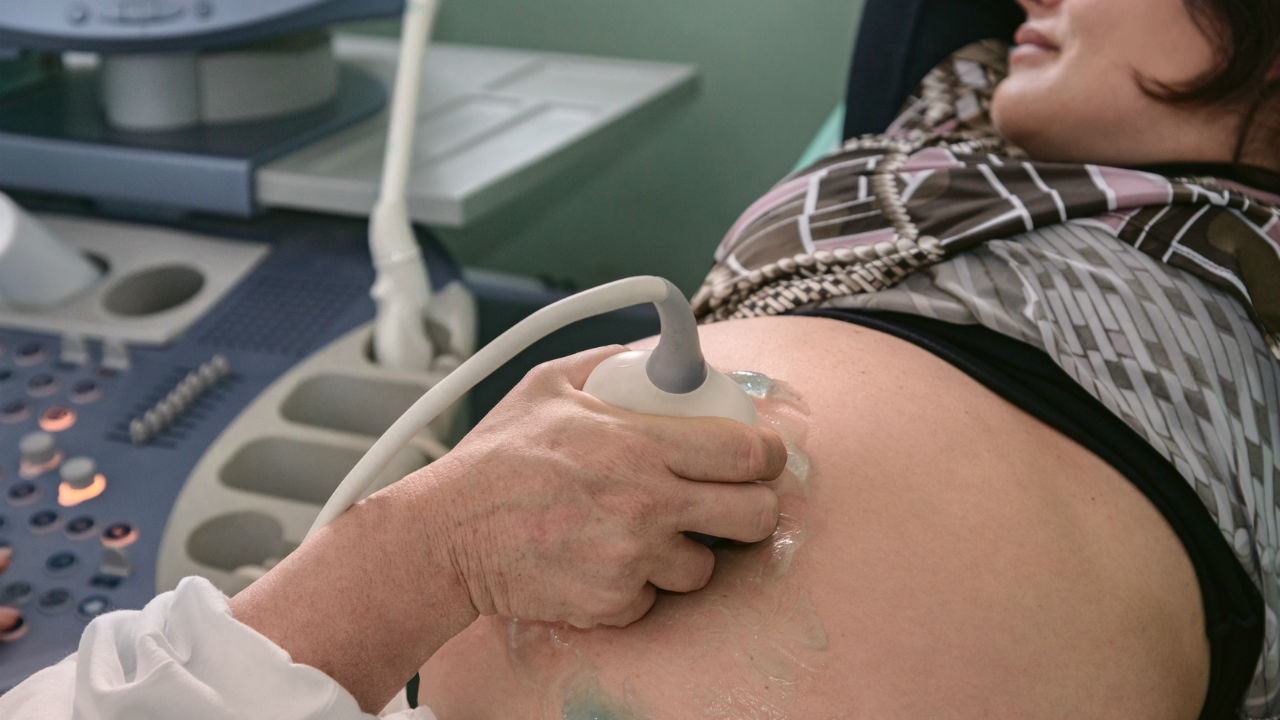Dr. Marlin Mills explains how preeclampsia, a severe obstetric condition, is treated. Dr. Mills is on staff at Banner Desert Medical Center in Mesa, Arizona.
Dr. Mills:
Once preeclampsia is diagnosed then the treatment of the preeclampsia will vary depending on the age or stage of which the pregnancy is. Most preeclampsia is diagnosed around or during the time of delivery so proceeding on with delivery of a baby would be an important part of the treatment of preeclampsia.
About a quarter of preeclampsia is actually diagnosed before the mother is in labor and the treatment of that would depend on whether the preeclampsia is mild or severe and how early in the pregnancy it’s diagnosed. If diagnosed at a premature gestation, particularly before 34 weeks gestation, then an attempt to stabilize the mother, watch and be sure that the baby or the fetus is staying healthy and able to be stabilized, but preparing for an early delivery would be what would be indicated.
Usually that would mean having the mother in the hospital, giving the mother corticosteroids, something like betamethasone or dexamethasone to help mature the baby’s lungs in the event of an early delivery and then, as long as the condition remained mild or settled in a way that the blood pressure was stable, the fetal environment was stable and the baby remained healthy then the pregnancy could be continued up to a point where there’s no longer a significant gain or benefit based on the degree of prematurity or the stage of the pregnancy of the mother is.
Generally, beyond 34 weeks gestation if the condition becomes more severe then delivery of the baby and the placenta would be the mainstay for treatment in those patients. The additional treatments would be related to managing the various organ systems involved. If the mother has hypertension, giving her medication to control the hypertension; if she has kidney failure, monitoring and watching fluids, electrolytes carefully to prevent an excess in the fluid developing.
In mothers who have significant swelling, have headaches, indicating significant swelling in the brain then treatment to reduce that swelling would be indicated to prevent the more severe consequences of the preeclampsia. So each of the treatments would be based on first, making sure baby was safe, preparing baby for the potential of a premature delivery, watching the various organ systems that could become affected during the course of what, during the time you are waiting for baby to become ready to be delivered and treating each of those organ systems in a way that helps protect the mother during that process.
Preeclampsia can even occur after the baby has delivered. About 25% of the time a baby is delivered a mother seems to have done well, then begins to develop all of the signs and symptoms of preeclampsia. Again, treatment of those various organ systems would be important.
One of the things I haven’t mentioned is preeclampsia is the condition that mothers have before they have a diagnosis of eclampsia and the distinguishing feature is that with eclampsia there is significant change in the circulation, edema, swelling in the brain to the point that mothers have had seizures, and these are usually what we call major motor or grand mal type seizures. They are usually self-limited, but can become complex and often require anticonvulsive medication.
The primary medication used in this country to prevent or treat those seizures initially is magnesium sulphate. So whenever a patient has a diagnosis of preeclampsia, particularly in the process of labor or in the severe form, then using magnesium sulphate to reduce the risk of those seizures is an important part of that management.
This would be true even in the postpartum period of the patient developed that condition and may even considered in what we call an atypical or delayed preeclampsia where mothers developed the symptoms of swelling, headache, elevated blood pressure, vision changes – all of the features of preeclampsia three, four, five weeks after delivery. Controlling each of those organ systems and the hypertension is important and using magnesium even in those patients maybe something we consider.
About Dr. Marlin D. Mills, M.D.:
Marlin D. Mills, MD, is board-certified in Obstetrics and Gynecology, and is on staff at Banner Desert Medical Center. A former medical director for the hospital, Dr. Mills provides yearly educational programming to the nurse staff on high-risk obstetrics—new ideas and options. Dr. Mills received his medical degree at Universidad Autonoma de Guadalajara Medical School in Mexico. He completed his Obstetrics and Gynecology residency at Valley Medical Center in Fresno, Calif., and his Maternal-Fetal Medicine fellowship training at University of California Irvine Medical Center, Long Beach, Calif.
Click Here For More Information On High-Risk Pregnancy
Click Here For More Information On Multiple Births
Keywords:
Condition: Preeclampsia, Pregnancy, High-Risk Pregnancy
Related Terms: Cesarean Section, C-Section, Vaginal Birth, Elective C-Section, Emergency C-Section, Labor, Umbilical Cord Prolapse, Preeclampsia, Toxemia
Health Care Provider: Banner Hospital, Banner Medical Center, Banner Health, Banner Desert Medical Center, Banner Desert Hospital, Maternity Services at Banner Desert Medical Center
Location: Mesa, Arizona, AZ, 85202, East Valley, Tempe, Chandler, Gilbert, Apache Junction, Phoenix, Maricopa County, Guadalupe, Phoenix Metropolitan Area
Expert: Dr. Marlin D. Mills, Marlin Mills, M.D, Doctor Mills, Obstetrician Marlin Mills, High-Risk Pregnancy Expert Marlin Mills, Marlin Mills, OB/GYN
Expertise: High-Risk Pregnancy, Cesarean Section, C-Section, Obstetrics and Gynecology, Maternal Fetal Medicine, Prenatal Education, Perinatal Care, Birthing Services, Fetal Assessment, Breastfeeding Support, Fetal Therapy, Fetal Intervention, Premature Babies, Preeclampsia, Phoenix Perinatal Associates, High-Risk Obstetrics, Fetal Physiology, Perinatal Grief

















